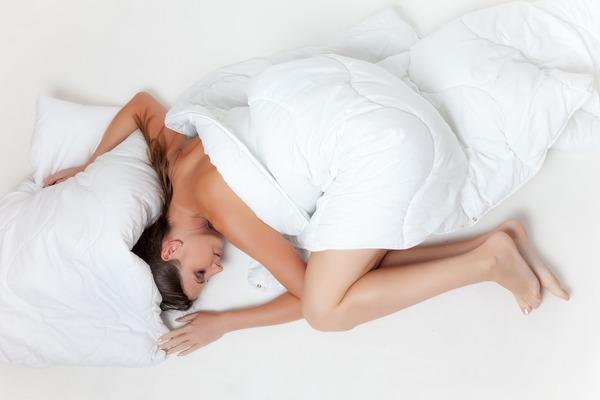
Sleep is important to your body, so important in fact that sleep deprivation is one of the tools that is used to brainwash someone. While you won’t get brainwashed after one bad night of sleep, your body will still experience some potentially devastating effects.
The more nights you get a bad night’s sleep the worse the effects are. Think of a good night’s sleep as your body’s reset mechanism. In fact, getting less than 6 to 8 hours of sleep a night can increase your risk of early death by 12%.
You might be familiar with being short tempered or forgetful, but the changes deep within your body may lead to poor health. In fact, if you experience number five, you need to see a doctor immediately! Fixing number nine could be the only love potion you need…
Memory Issues
As you sleep your brain creates neural pathways that help you remember new information. A bad night’s sleep affects how well you memorize and retain information. You need both REM sleep and slow-wave deep sleep cycles to retain different types of memories.
You might be able to cram information in during an all-night study session, but it gets stuck in short term memory and fades more quickly.
Studies show that people who get a good night’s sleep (or even a nap) perform better on tests, work, and athletic events, including music.
Concentration

You can’t concentrate as well or learn new tasks. Creativity suffers and problem-solving skills plummet. The more tired you are, the slower your brain functions and the harder it is to perform tasks involving logical reasoning or complex thought.
Sleep loss is a contributing factor for hyperactivity in children. School work suffers as teens lose sleep as well.
Mood Changes
You’ve probably noticed you are moody, short tempered, and quick tempered after a bad night’s sleep. Even coffee won’t help and may keep you from getting another good night’s sleep.
There are also links between sleep loss and mood disorders like anxiety, depression, panic disorders and other related mental illnesses.
Accidents
Feeling drowsy, lack of concentration, and a loss of focus have contributed to many vehicle and equipment accidents. You don’t focus as well and can’t respond as quickly. If you are tired enough, you can even fall asleep while driving. In 2013, the NHTSA estimated that 72,000 crashes and 800 deaths were caused by drowsy driving.
Coordination and balance may be affected and lead to falls or clumsy accidents. Sleep deprived workers report more accidents and take more sick days
Immunity

Sleep gives your body a chance to create protective substances. A sleep deprived body also doesn’t respond the same way to an infection. Sleep also lets you fight off infections without having to focus on all the tasks you perform during the day. A normal body increases the fever response at night for better infection fighting response.
Some of the substances created, like cytokines, help you sleep. The more sleep you lose, the more risk you are for chronic illnesses.
Respiratory System
Respiratory issues have two causes. The first is the depressed immune system leaving you open to developing flus and colds. The other issue is that if you are not sleeping well because of sleep apnea, you risk death from a variety of causes, including a sleep-deprived-because-of-snoring partner!
Weight Gain And Diabetes
Sleep loss makes you want to eat to stay awake. Sleep increases the levels of leptin, an appetite reducing hormone and depresses ghrelin, an appetite stimulating hormone. Lack of sleep reverses this and you want to eat.
Sleep deprivation increases insulin levels. These cause your body to store fat and increase your risk of type 2 diabetes.
Finally, a bad night’s sleep leads to a decreases desire to exercise. Losing sleep leads to weight gain and increases risk of diabetes.
Unhappy Heart
Sleep loss can lead to increased blood pressure and inflammation. Not enough sleep may lead to cardiovascular disease and eventually heart attacks and strokes. It is not clear why, but altered immune response, disrupted metabolism, and increased blood pressure plays into heart health.
Since you don’t feel like exercising, your heart muscle doesn’t get a good workout.
Sleep disrupted teens show the same responses and as a result, more children are at risk for heart disease at younger ages.
Sex Drive

You need at least three hours of uninterrupted sleep to create testosterone. If you are feeling a decreased sex drive, you may be able to blame it on loss of sleep. Low energy and lack of sleep may lead to “tense tiredness” and lead to sexual dysfunction.
Wimpy Muscles
Children and adolescents also need sleep to build muscles. Sleep and exercise both increase the release of growth hormones. In addition to decreased growth hormones, your thyroid suffers. The thyroid controls metabolism and plays into weight gain.
Some Ways To Get Better Sleep

Not everyone responds to these suggestions, so try them out and talk to your doctor for more ideas. First, spend time outside during the day. Bright light increases both sleep quality and how long it takes to fall asleep. Next, turn off blue lights at night (computers, TV screens, etc) two hours before heading to bed. Avoid caffeine after 3 p.m. (or earlier). Limit naps and set a regular schedule.
Conclusion
If you are yawning, irritable, and excessively sleepy during the day, you might be suffering from sleep deprivation. Being tired puts you at risk for accidents, injuries, and serious illness from your brain to your digestive system.
Modern life tells us that sleep is sacrificial offering on the altar of commerce and 24-hour convenience. In reality, our lack of sleep is slowly killing us and ruining the quality of our lives.
Sleep is one of the most important activities you can undertake, so help yourself by getting a great night’s sleep!
